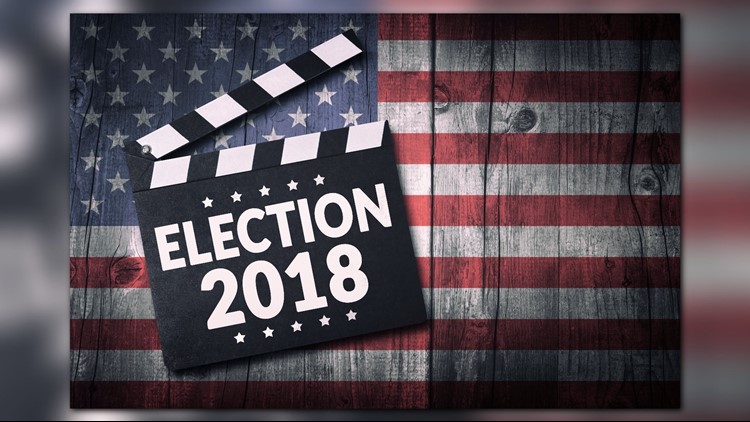Proposition 112 would create 2,500-foot buffer zones around “occupied structures” and “vulnerable areas” where future oil and gas production would be off limits.
Occupied structures include homes, schools and hospitals, as defined by the final wording of Proposition 112. It defines vulnerable areas as playgrounds, permanent sports fields, amphitheaters, public parks, public open space, public and community drinking water sources, irrigation canals, lakes and reservoirs, streams and creeks and “any additional vulnerable areas designated by the state or a local government.”
A “yes” vote supports creating the measure’s 2,500-foot buffer zones for future oil and gas development.
A “no” vote opposes creating the measure’s 2,500-foot buffer zones for future oil and gas development.
Current state regulations, approved in 2013, set buffer zones that prohibit oil and gas production within 500 feet of homes and occupied buildings. A 500-foot setback translates to a circle of about 18 acres around any given point, while a 2,500-setback would prohibit oil and gas development in a circle of about 450 surrounding acres around any given point, according to an assessment by the Colorado Legislative Council. (Note: Proposition 112 was called Initiative 97 during the initiative process. The LCS analysis refers to Initiative 97)
Fiscal Impact
State revenue and expenditures would decrease under Proposition 112, according to the Legislative Council Staff’s initial fiscal impact statement. The impact statement says future revenues from severance taxes, royalty payments and lease revenue would decrease because Proposition 112 “reduces the surface land available for the development of new oil and gas production.”
The impact statement says future income, sales and use taxes may also decrease.
Proposition 112 applies only to state and privately held land. The measure grandfathers existing wells and does not impact future production on federal lands. (Federal lands make up about 36 percent of Colorado’s land area and have their own set of rules and regulations that govern oil and gas production.) But language in the measure states that dormant oil and gas infrastructure will qualify as future production if the infrastructure comes back online.
“The reentry of an oil or gas well previously plugged or abandoned is considered new oil and gas development,” and it would be subject to the 2,500-foot setback rule.
The Legislative Council’s impact statement says the impact on future oil and gas production will vary regionally across Colorado, depending on the amount of privately held land, population density and proximity to vulnerable areas. The Council said the Julesburg basin in northern Colorado will be the most affected.
The Colorado Oil and Gas Conservation Commission released its own assessment of Proposition 112. The COGCC impact statement examined how a 2,500-foot setback would impact Colorado’s top five oil and gas producing counties. The Julesburg basin lies underneath much of Weld County, the state’s largest oil and gas producer.
Under Proposition 112, 78.1 percent of Weld County’s total land surface – private, public, state and federal land – would become off limits to future oil and gas production. When federal land is excluded – they fall under a different set of regulations – the COGCC assessment says Proposition 112 would prohibit future oil and gas production on 85 percent of Weld County’s non-federal land surface.
In the state’s next four largest oil and gas producing counties – Garfield, La Plata, Rio Blanco and Las Animas, which all contain large tracts of federal lands – Proposition 112’s 2,500-foot setback would eliminate future oil and gas production on between 98.6 percent and 99.9 percent of non-federal lands.
Proposition 112’s backers claimed they turned in more than 171,000 signatures. The measure needed 98,492 valid signatures to qualify to appear on the November ballot.
Arguments For
1) Oil and natural gas operations may adversely impact public health, safety and the environment. Some people living near these operations have reported negative health effects to the CDPHE, including sinus and respiratory conditions, as well as other symptoms, such as headaches and nausea. Such development increases noise, traffic, dust, light and odors. Proposition 112 requires that new oil and natural gas development be located farther away from homes, schools, businesses, and other occupied buildings, thereby reducing nuisance impacts and potential exposure to air pollutants. Proposition 112 also establishes a required setback from water sources and recreation areas to help protect those resources.
2) Over the past several years, Colorado's northern Front Range has seen both substantial urban development and increased oil and natural gas activity. Proposition 112 provides property owners with greater certainty about the location of new oil and natural gas development in their communities. Keeping oil and natural gas development farther away from occupied structures reduces resident exposure to industrial activity and the potential hazards related to such activity. It may also improve the quality of life for nearby residents. Some people are reluctant to purchase or rent a home or visit a business or recreation area located near oil or natural gas development.
Arguments Against
1) Proposition 112 eliminates new oil and natural gas activity on most non-federal land in Colorado. According to the COGCC, about 85 percent of Colorado's non-federal land would be excluded from development with the required 2,500-foot setback. Oil and natural gas development is important to Colorado’s economy, generating an estimated $10.9 billion in production value in 2017 and supporting many other industries and jobs. Proposition 112 will reduce the economic benefits the oil and natural gas industry provides for the state and may result in the loss of jobs, lower payments to mineral owners, and reduced tax revenue that is used for local schools and other governmental services and programs.
2) Proposition 112 is unnecessary because the existing COGCC setback requirements provide a balanced approach to protecting public health, safety, and the environment. The state’s existing setback requirements were developed through a collaborative rule-making process and guided by technical expertise. When adopting its setback rules, the COGCC considered the concerns of mineral owners, residents, schools, businesses, and others. Under current law, the COGCC has the authority to modify setback requirements in the future, if necessary.



